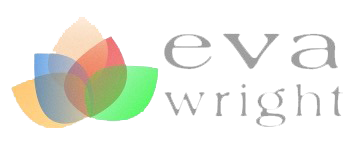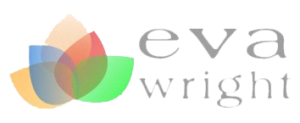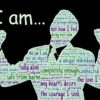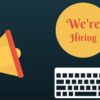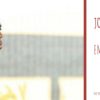
As the saying goes, he who fails to plan, plans to fail. This is no different in securing a job. It is rather disheartening when a job seeker sits before an interview panel unprepared. The ability to ace a job interview rests in your planning and presentation.
This week in the last installment of my Job Seeker 101 series, I’d like to offer advice to help job seekers ACE their job interviews.
Before that, you may want to review other blogs in the series here, here and here.
Here we go…
Research the organization.
This will help you answer questions — and stand out from less-prepared candidates. It will also help you know which intelligent questions you are to ask you interviewer should they give you the opportunity to ask a question.
What do you look for in your research?
- Background information about the company – here Google is your friend. Understand their mission and vision – this is important. Someone may ask you what you know about the company.
- Find out their products and services. Don’t just memorize them, seek to understand them. If possible call their customer service line and ask questions like an inquiring customer.
- The role you are being considered for.
- The corporate culture of the firm.
- Their past performance in the market.
- Check out their competitors too.
- Review the organization’s background and mission statement.
- Read recent press releases for insight on projected growth and stability.
- Get perspective. Review trade or business publications. Seek perspective and a glimpse into their industry standing.

The aim is that your knowledge would make the interview more of a conversation than an inquisition. Also the more you know about your prospective employer, the more confident you will be and sound…
Align your skills and qualifications to the job requirements.
Never apply for a job that you are not in any way qualified for. Examine the job description. Outline the knowledge, skills and abilities required. Compare what the employer is seeking to your qualifications. NEVER overstate your skills or qualifications – someone may just take you up on it.
I recall an interview I sat in once, the lady said she was fluent in English and French. Unbeknown to her, my boss (chairing the panel) speaks French fluently. He addressed her in French, and her response was a mutter. Hardly a fluent sentence in French. Oops! She had been caught!
The perception to everyone on the panel was that she was not a truthful person. This was a bank job she was applying for.
She did NOT get the job. What a sorry outcome, isn’t it?
Prepare responses.
Most interviews involve a combination of resume-based, behavioral and case questions. It is wise to go online ahead of your interview and find a list of probable interview questions and answers. Get acquainted with them.
I know one really tough question is the one that asks you to share your greatest weaknesses. I have seen really strong candidates shoot themselves in the foot here. Your answer should never be ‘… anything your organisation offers me…’
This may lead your interviewer to believe that you are not confident or don’t believe in yourself and have nothing of value to offer.
Another one is the question about why you are leaving your previous employer. Never bad mouth your previous employer – that’s a big faux pas. You will never get hired if you do this.
Just last month, I had a young man give me a litany of sins his current employer was guilty of. He actually said that his Chief Executive was siphoning clients’ funds to fund his political ambition. Yikes!!! Imagine what this young chap would say about my company if given the job!
So, prepare responses to the toughest questions ahead of your interview.
If you can afford it, find a coach to help you prepare. It’s not as expensive as you think. Contact Lizspire if you need interview coaching services.
Plan what to wear.
I used to work in a bank, and was fortunate to sit on a number of interview panels. I recall a lady attended an interview wearing skinny black pants with a gold sequined blouse.
Obviously she didn’t understand that banking is a conservative work environment and this outfit would not fly. That did not stand her in good stead with the panel. It brought to question her ability to make quality judgement calls. Plus she obviously did not plan ahead.
 So, when planning for an interview, plan to wear neutral tones. Nothing that flaunts your sexuality but also nothing that makes you look frumpy. The aim is to look professional and confident.
So, when planning for an interview, plan to wear neutral tones. Nothing that flaunts your sexuality but also nothing that makes you look frumpy. The aim is to look professional and confident.
As a rule, never look for what to wear the day of the interview. Plan ahead, and set your outfit out well in advance.
Men usually forget to shine their shoes… you should not! Plan ahead…
Plan what to bring.
You will be surprised how many interviewers will ask you for an extra copy of your resume or credentials. Plan to come along with extra copies. Don’t leave it to chance…put them in your case the day before not simply the morning of your interview.
Other items people usually forget include:
- A functional pen (yes…its important to bring yours)
- A list of references
- Information you might need to complete an application
- A portfolio with samples of your work, if relevant (architects, graphic designers etc. take note)
When you get there
Don’t assume that you only have to be at your best behavior when you sit before your interviewer. Assume that someone is watching you as you step into the building. Remember that nonverbal communication speaks volumes.
 Project your confidence. Be courteous to everyone – no exceptions – including fellow job seekers.
Project your confidence. Be courteous to everyone – no exceptions – including fellow job seekers.
When you arrive the interview room. please DON’T sit until you are asked to. Interviewers watch for this interview faux pas.
Posture counts. Sit up straight yet comfortably. Be aware of nervous gestures such as foot-tapping. If you are asked to sit on a swivel chair, PLEASE do not move or twist that chair.
Be attentive. Don’t stare, but maintain good eye contact, while answering an interviewer’s questions.
Respect their space. Do not place anything on their desk – even your $3,000 bag. No one is impressed by your beautiful bag – at least not during the interview.
Manage reactions. Facial expressions provide clues to your feelings. Manage how you react, and project a positive image.
Ending the Interview.
Remember the first point about researching the company? Many interviews end with “Do you have any questions?” This is where the quality of your research will set you apart. The idea is that while researching you would have written down some questions. Bring your list along.
If asked for questions, you can start by saying “…in preparing for today’s meeting, I took some time to jot down a few questions. Please allow me to review my notes.” There is no harm in asking if you can refer to your prearranged questions.
Be strategic. Cover information not discussed or clarify a previous topic — do not ask for information that can be found on the organization’s website.
Questions like these are a good place to start:
- In your opinion, what makes this organization a great place to work?
- What do you consider the most important criteria for success in this job?
- Tell me about the organization’s culture.
- How will my performance be evaluated?
- What are the opportunities for advancement?
- What are the next steps in the hiring process?
Let it show that you are really interested in the answers to your questions. Never zone out.
After all your questions have been addressed, and you are told the interview is over NEVER just stand up and leave.
Make sure you look at the interviewer(s), thank them for their time and say you are looking forward to hearing from the organisation.
Find out more about Lizspire and how we can help you live personally and professionally successful.
